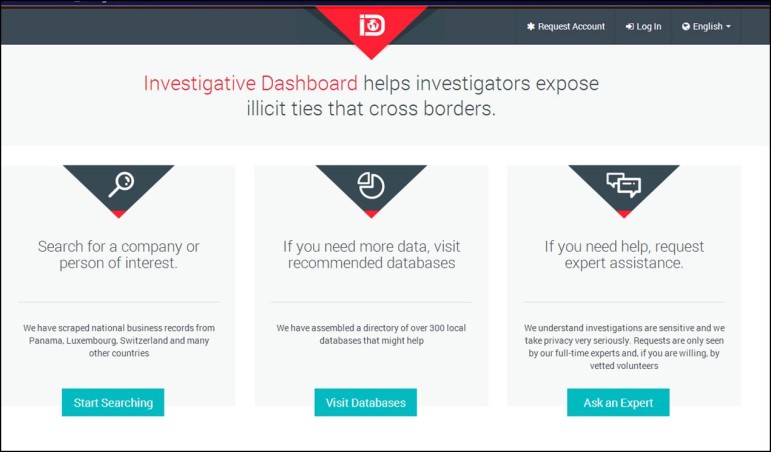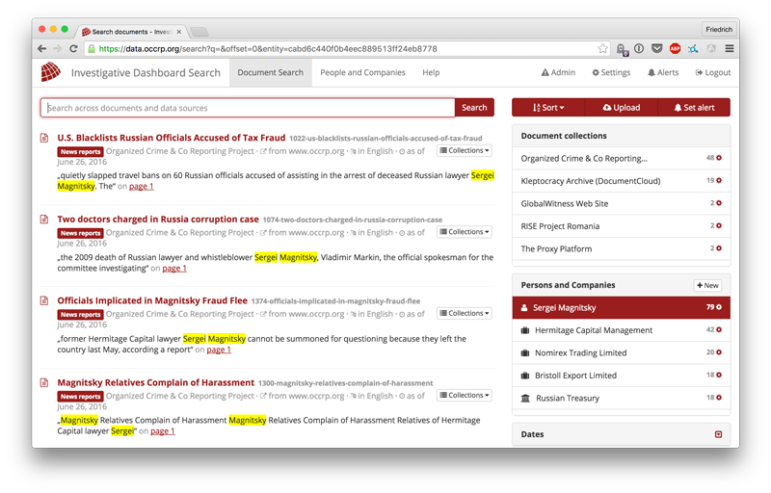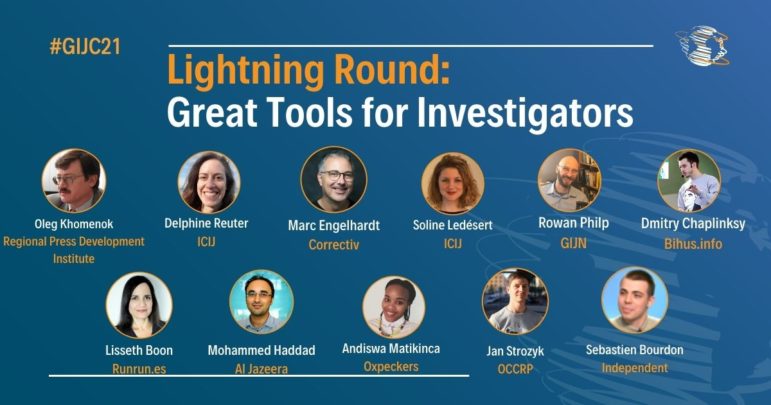

How Can Online Research Tools Help Investigative Reporters?
 How can online research tools aid the work of investigative reporters and others looking into transnational financial flows, corporate structures, and the illicit activities of organized crime and global business?
How can online research tools aid the work of investigative reporters and others looking into transnational financial flows, corporate structures, and the illicit activities of organized crime and global business?
Google and the Organized Crime and Corruption Reporting Project (OCCRP) brought together a small group of investigative journalists and technologists from around the world to examine the answers to this question at their first Investigathon in London during July.
While Google staff demonstrated how to use some of their tools, such as Image Search and Fusion Tables, the star of the event was Investigative Dashboard, a project of OCCRP developed by investigative journalist Paul Radu and media strategist Justin Arenstein. The platform connects journalists investigating transnational stories with researchers who are familiar with a particular geographic region. These researchers then retrieve information about companies or individuals from local registries and databases.
Dashboard-inspired group work sessions at the Investigathon highlighted the importance of data from company registries and official gazettes in investigative journalism. Knowing which companies share board members or have subsidiaries in other countries is crucial to understanding potential conflicts of interest–and potentially dodgy business schemes.
The workshop highlighted the need for newsrooms to put this data on companies and control structures into context, alongside other evidence, over the course of an investigation. While such data are available in a globally consolidated form through paid services, few investigative reporters or news outlets are able to afford their steep fees.
OpenCorporates, an open data-powered alternative, makes data freely available, but the start-up doesn’t yet cover all jurisdictions of interest. And while OpenCorporates, and other sites such as the OffshoreLeaks database, OpenSpending, and OpenSecrets increasingly offer newsworthy data for reporters to mine, there needs to be another, investigation-specific layer on top of these sites.
Such a layer of tools would combine data about persons and companies from public data platforms with other evidence that research uncovers. This layer would also store information about the source and reliability of the data, and allow journalists to analyze the combined dataset to discover signs of illicit or illegal behavior.
While such tools for integrating and analyzing investigative evidence are available for those with deep pockets, there is also a need for an open source solution. This is why one of the goals of my ICFJ Knight International Journalism Fellowship is to build out grano, a toolkit for investigative journalists.
Starting with an influence-mapping tool, similar to Poderopedia and LittleSis, our first goal is to create an involuntary face book of the companies, people and institutions of interest to journalistic investigations. Once that basic infrastructure is matured, we want to take the step from making a database to making a workbench. grano will help investigators create a coherent representation of their investigations, by combining data from public sources with the evidence they have collected themselves. This will create both an analytical tool and a re-usable memory, either to be shared within institutions or even in public.
As a first prototype, we’re building out connectedAfrica, which we’ll launch in South Africa. This collaboration between the African Network of Centers for Investigative Reporting (ANCIR) and the Institute for Security Studies will begin by providing a public database focused on South Africa’s top politicians, detailing their business and political involvements. Our goal is to give users a way to explore connections between individuals, companies and public institutions, and to analyze the network for signs of dodgy behavior.
Based on the feedback from this experiment, we’re hoping to turn grano into a product that can support users who want to create similar structures for their own investigations – whether they are looking at company networks, political finance, government licensing, procurement, court cases, policy making — or the all of these combined.
Friedrich Lindenberg, an ICFJ Knight International Journalism Fellow, works with journalists and watchdog groups to develop data resources and investigative tools. This post first appeared on IJNet.org. IJNet helps professional, citizen and aspiring journalists find training, improve skills and make connections, and is produced by the International Center for Journalists in seven languages.











